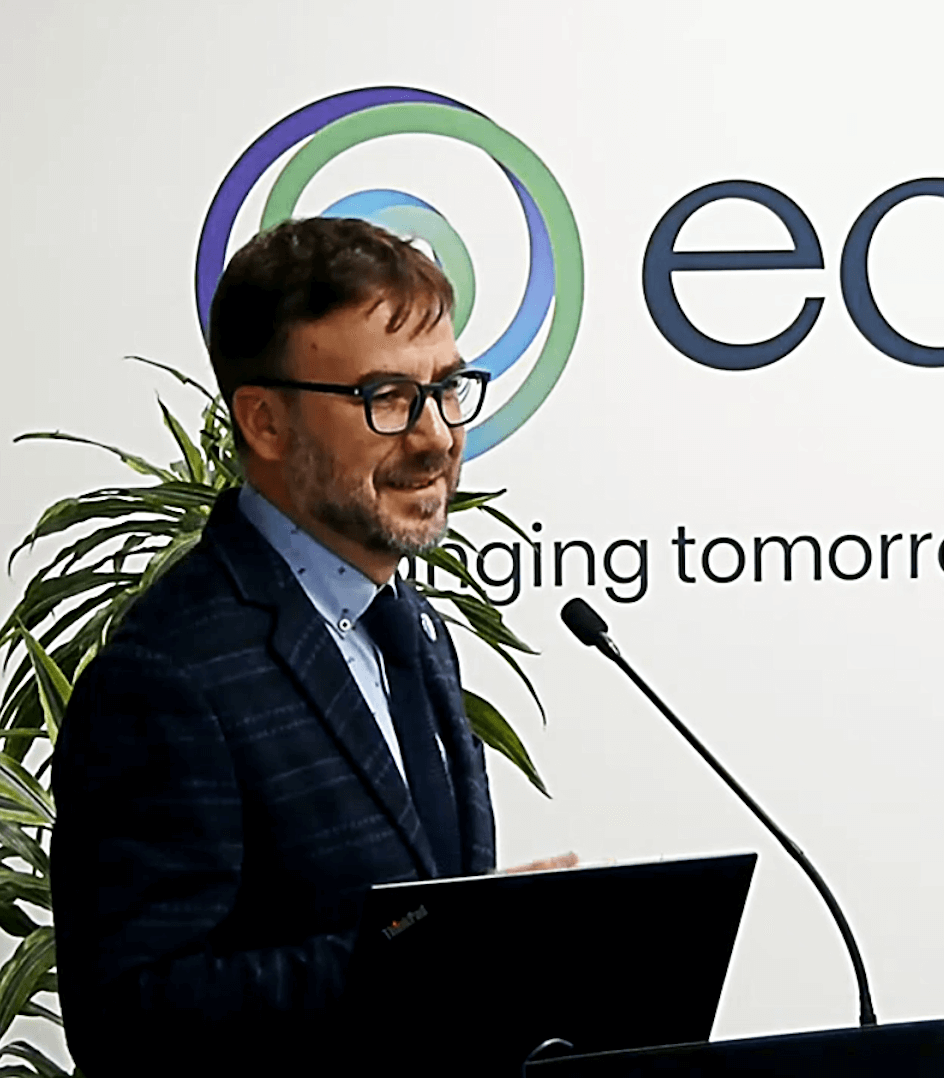
Alfredo Menéndez: "Excellent ESG management is based on sustainable, inclusive and efficient business models"
Alfredo Menéndez Morán is Head of Sustainability and Continuous Improvement at EDP Spain, where he is responsible for the development, implementation and monitoring of the sustainability plans of the different business platforms of the EDP Group in Spain, as well as focal point of the stakeholders for the development of projects and programmes of action and social investment, highlighting the implementation of socio-environmental projects in the areas of fair energy transition where EDP has facilities in the process of reconversion and/or new projects.
Additionally, he leads the LEAN continuous improvement programme, from where he works transversally with the entire organisation in the identification of problems and opportunities, as well as in the capture and development of the corresponding improvement initiatives.
Finally, he has participated in various publications on ESG issues, and is an internal and external trainer, notably participating in master's degrees on sustainability and CSR, accounting and reporting of non-financial information, and operations and continuous improvement, among others.
What responsibility should a Sustainability department have in a company like EDP?
We face major global challenges, such as climate change, resource scarcity and biodiversity loss, and to combat them effectively, we need to transform our economic and social development model, in terms of how we produce, how we consume and what footprint and deficit we are leaving on the planet.
This transformation inherently leads to a new, decarbonised world, and therefore an electrified world, with a new, renewable energy sector. This is where we at EDP want to be, facing the challenge of building a sustainable world from business, a world where energy is clean, reliable and affordable.
To this end, at EDP we have placed sustainability at the heart of the strategy, with the Sustainability Department defining the sustainability plans of the different areas, in such a way that they reinforce the business plans, creating value for the company and for stakeholders.
This is achieved through the deployment of effective ESG policies, managing risks and opportunities in advance, and proactively anticipating stakeholder expectations, both from a regulatory point of view as well as the demands of the market, society, customers, communities, etc.
In a more practical way, an EDP project not only involves the best technical solution but is always accompanied by a set of social and environmental programmes that seek to ensure that the project is a driving force in the territory, in terms of its capacity to create wealth and employment, improve the environment, or promote equality and social inclusion.
How can Lean methodology help companies achieve their strategic sustainability and ESG objectives?
Lean is a culture of continuous improvement that puts people at the centre and promotes the value of their knowledge of the processes, as the main protagonists, not only in the identification of problems and opportunities, but also in the design and implementation of improvement initiatives. This results in greater operational and organisational efficiency, higher productivity and true employee engagement with the company and its strategy.
Likewise, excellent ESG management is based on the same principle: putting people and the environment at the centre in order to build sustainable, inclusive and efficient business models based on their needs and expectations.
It is therefore a co-responsible management where each stakeholder must be informed and involved in order to contribute effectively. By way of example, the energy transition is not only a change in the production model from fossil fuels to renewable energies, but customers must also adopt responsible purchasing and consumption models, electrifying their consumption and opting for self-consumption and sustainable mobility models.
And all of this, in an inclusive and equitable way, considering local supply chains and the needs of the most vulnerable groups, to ensure that no one is left behind, and to continue creating wealth and employment in order to build a fairer and more equitable society.
Everyone's commitment, no matter how small, adds up to big results
In Lean at EDP we always talk about small improvements that add up to big results, and this same motto can be transferred to sustainability: everyone's commitment, no matter how small, adds up to big results.
To what extent does a digital marketing plan support the communication strategy - in this case, the sustainability area - of a large corporation?
Transparency and real and effective communication are the basis of an excellent ESG strategy, as they establish two-way communication channels between the company and its stakeholders with a focus on proactivity and anticipation.
In this way, genuine relationships based on trust are built, enabling multi-stakeholder partnerships and collaboration strategies, with measurable impact and return for all parties.
By limiting all these actions in a digital marketing plan, we can be more ambitious and effective, since, in a structured way, we can reach many more interest groups, and continuous communication is achieved, practically in real time.
How can digital transformation help to work towards sustainability?
Digitalisation is undoubtedly one of the great levers in the energy transition and in the change of socio-economic model we are facing, as it allows us to be more efficient in our processes, adopt more circular strategies in the use and consumption of products and services, or make decisions based on the management of large amounts of data (the famous big data) to prevent failures and breakdowns, for example.
Automating processes reduces costs and frees up resources so that people can work in the areas that add the most value, while reducing the risk of failure and even labour and environmental risks.
In short, digitalisation makes it possible to be more agile and to respond to the demands of an increasingly volatile environment, while always maintaining the premises of responding in a sustainable, reliable and inclusive manner.

